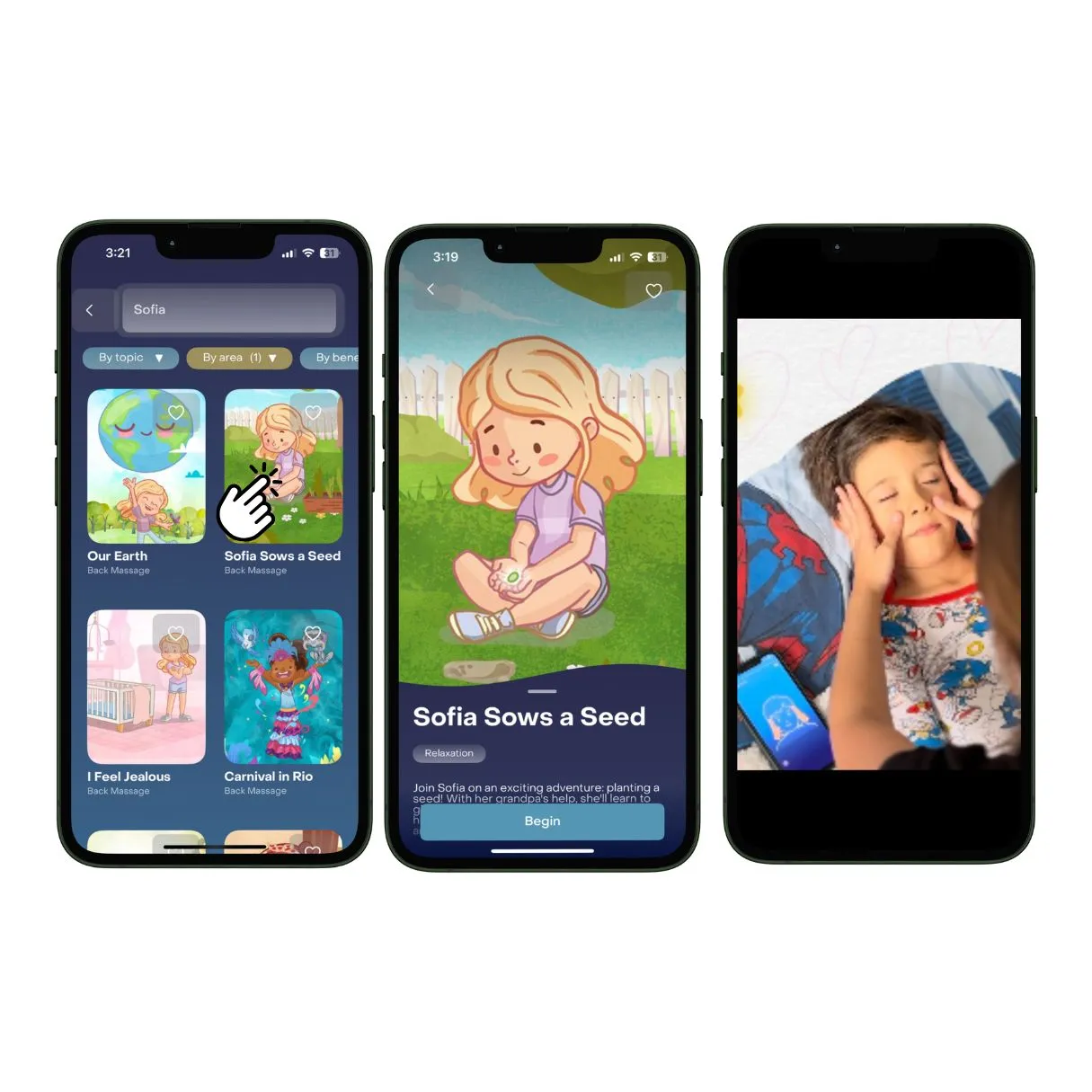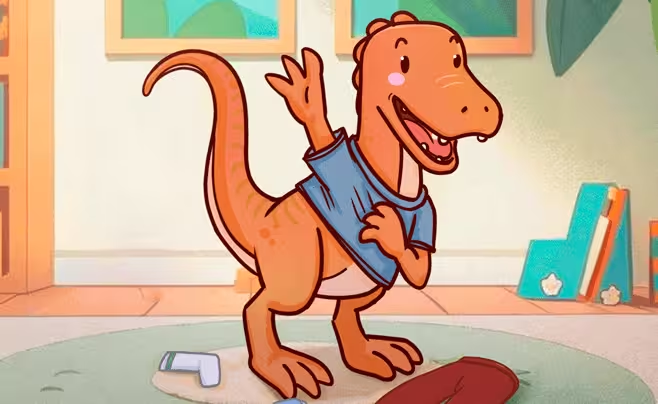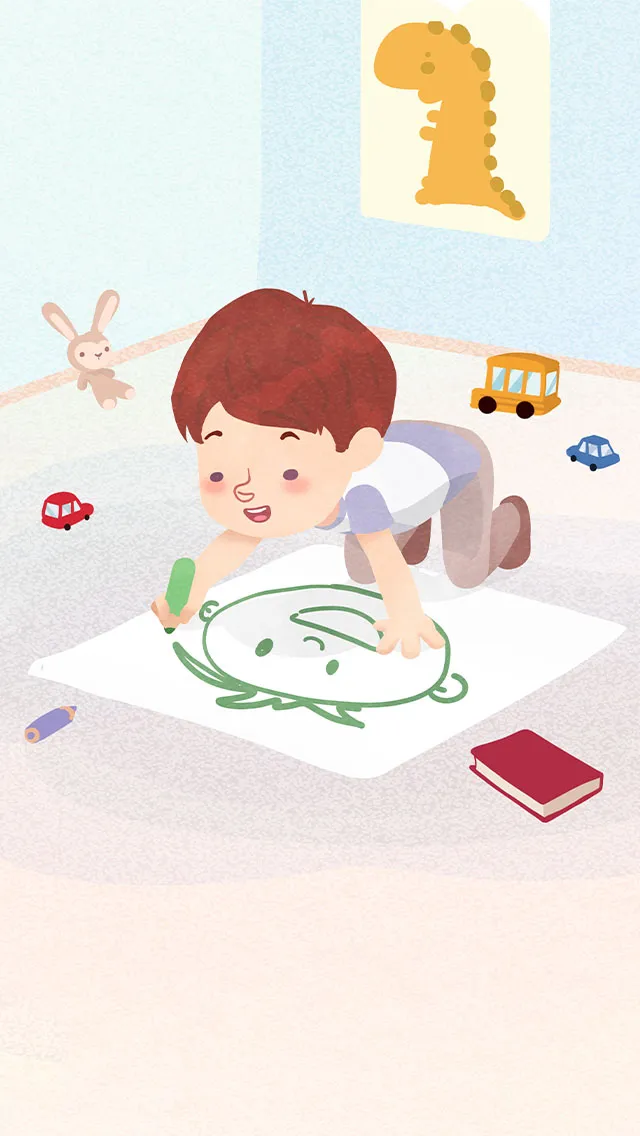Teaching kids responsibility can be fun and engaging when you incorporate creative activities into their daily routines.
From chore charts to taking care of pets, these activities can help children understand the value of being accountable for their actions.
Here are 12 fun and effective ways to teach responsibility to your kids.
1. Use stories about responsibility
A great way to teach responsibility is through storytelling. Take Sofía and Javier, for example.
They wanted to show their daughter, Emma, the value of patience and effort, as she often became frustrated when things didn’t go her way right away.
After reading "Sofía sows a Seed" on the Storybook App, Emma learned that just like a seed needs time and care to grow, some things require dedication and patience.
Now, when Emma feels impatient, she recalls the story and finds the motivation to keep working toward her goals.
Use stories like this to make teaching patience and responsibility fun and memorable for your children! 👀 ⬇️

2. Chore chart creation
Creating a chore chart is a fun and visual way for kids to track their responsibilities.
Whether it’s setting the table, cleaning their room, or taking out the trash, a chore chart gives them a clear understanding of what needs to be done and when.
Let your child check off tasks as they complete them and reward consistent responsibility with small incentives like extra playtime or a family activity.
This activity pairs well with optimism activities for kids, as it encourages a positive mindset toward completing tasks.
3. Homework Routine
Establishing a solid homework routine helps children understand the importance of completing their tasks on time.
Create a dedicated space and time for homework each day. Encourage your child to start with the hardest subject first and finish with the easiest, helping them learn to manage their workload and develop a sense of discipline.
Incorporating mindfulness activities for kids into their routine can help them stay focused and calm during homework time.
%25202.44.02%25E2%2580%25AFp.m._4.webp)
4. Pet care
Involving your child in pet care can be a rewarding way to teach responsibility. Feeding, walking, or cleaning up after a pet instills a sense of accountability.
You can start with small tasks like refilling the water bowl, and as they get older, let them take on more, such as cleaning the cage or managing vet visits.
This can be enhanced by using empathy activities for kids to help children understand the emotional needs of their pets and care for them responsibly.
%25202.43.42%25E2%2580%25AFp.m._3.webp)
5. Personal organizing
Teach your child to take care of their own space by organizing their personal items. Encourage them to keep their room tidy, organize their toys, and fold their clothes.
Setting up designated spaces for toys and clothes helps them develop a routine for organizing, giving them a sense of ownership over their belongings.
Join your little one in a fun and educational journey with Velociraptor Dresses Himself from the Storybook app.
This exciting tale helps your child learn about independence and the joy of doing things on their own, all while exploring a prehistoric world filled with excitement. 👀⬇️
6. Gardening
Gardening is an excellent way to show kids how taking care of something consistently pays off.
Plant a small garden with flowers or vegetables and assign your child the responsibility of watering and tending to the plants.
Watching their plants grow over time will teach them that effort and patience lead to positive results.
%25202.43.31%25E2%2580%25AFp.m._2.webp)
7. Cooking Help
Involving your child in cooking is a fun way to introduce responsibility. They can start with simple tasks like washing vegetables, stirring ingredients, or setting the table.
Gradually, they can help with more complex tasks, which teaches them about following instructions and the importance of teamwork in family responsibilities.
Linking this with respect activities for kids teaches them to value the role of cooperation and respect in family responsibilities.
%25202.41.50%25E2%2580%25AFp.m._1.webp)
8. Family Meetings
Holding a family meeting is a great way to discuss responsibilities as a team. You can talk about the chores that need to be done, set goals for the week, and give everyone a chance to voice their opinions.
This teaches kids the importance of contributing to family decisions and being accountable for their part in keeping the household running smoothly.
This can also be paired with courage activities for kids, empowering children to speak up about their responsibilities.
9. Allowance Management
Teaching kids about allowance management helps them understand the value of money and the responsibilities that come with it.
You can give them a small weekly allowance and teach them how to budget, save, and spend responsibly.
This not only promotes financial literacy but also encourages them to manage their resources wisely.
10. Responsibility Jar
The responsibility jar is a fun game where kids can draw tasks from a jar each day. Each slip of paper contains a responsibility, like “Help wash the dishes” or “Pick up the toys.”
This adds an element of surprise and variety to their routine, making it more engaging and teaching them to handle different responsibilities.
%25202.38.00%25E2%2580%25AFp.m..webp)
11. Simon Says
Simon Says is a classic game that teaches kids to follow instructions carefully. It’s a fun and interactive way to build listening skills and the ability to focus on what they’re being asked to do.
By playing this game regularly, children learn that paying attention and following directions are key aspects of responsibility.
This can be an engaging complement to perseverance activities for kids, which emphasizes the value of sticking with tasks until they are completed.
12. Goal settings
Encourage your child to start setting goals for themselves, whether it’s for school, hobbies, or personal development.
Help them break their goals into smaller, achievable steps, and check in regularly to see how they’re progressing.
By setting and reaching goals, children learn to take ownership of their actions and work towards achieving results on their own.
This can align with humility activities for kids, teaching them to stay grounded while working toward their goals.
What are some simple responsibility activities for kids?
Simple responsibility activities for kids can include tasks that are easy to manage but help build a sense of accountability.
These activities tie well with gratitude activities for kids, helping children appreciate the value of their daily tasks.
These tasks are simple but teach children the importance of completing daily responsibilities.
- Picking up toys after playtime.
- Feeding pets at regular times each day.
- Setting the table before meals.
- Watering plants or taking care of a small garden.
- Making their bed each morning.
How can I teach my child to be responsible for their schoolwork?
To teach responsibility for schoolwork, create a consistent homework routine and set up a quiet workspace.
Break tasks into manageable steps, offer praise for completing work on time, and let them face natural consequences if they forget an assignment.
These strategies help them build accountability for their education.
Combining this with kindness activities for kids can foster a well-rounded approach to responsibility.
What are some age-appropriate chores for young children?
For young children, age-appropriate chores include picking up toys, sorting laundry, watering plants, folding small items like towels, helping to feed pets, and wiping down surfaces.
These simple tasks fit their abilities and instill a sense of responsibility.
Pairing these chores with generosity activities for kids can teach them the value of helping others while managing their own responsibilities.
How can responsibility activities be integrated into daily routines?
Responsibility activities can be easily integrated into daily routines by assigning morning tasks like making the bed, including children in meal prep, and establishing clean-up time after meals or play.
Using chore charts and involving kids in organizing for the next day before bed also promotes responsibility as a natural part of their day.

Written By
Entrepreneur mum. I created Storybook: Bedtime Stories the #1 app in over 90 countries. I have been able to help families with the app and through my social media influence. I also created a Facebook group with over 12,000 moms where we support each other.
References












.webp)

